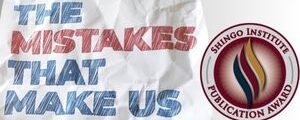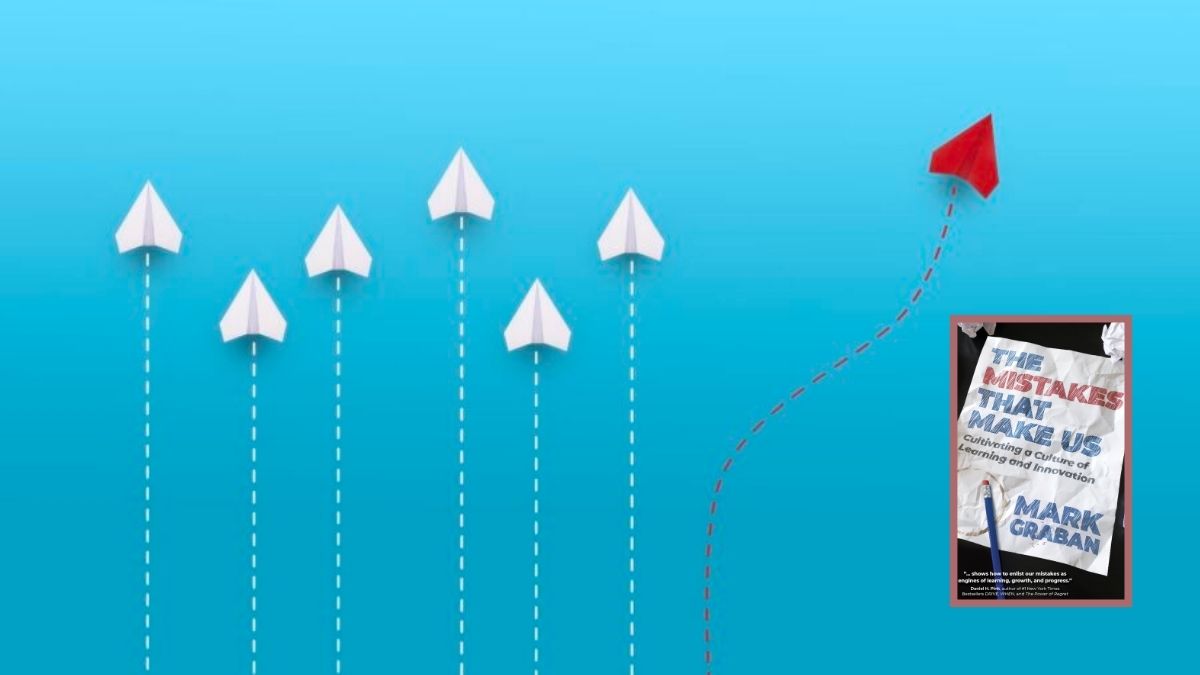In the dynamic landscape of modern business, the capacity to learn from errors is not just an advantageous skill but an essential component of success. This perspective is eloquently presented in Mark Graban’s The Mistakes That Make Us, particularly in the context of lean methodology. Originally rooted in manufacturing, lean is a philosophy centered around efficiency and continuous improvement. The intersection of this methodology with the natural human inclination to make errors fosters a transformative approach to business operations.
The Core of Lean: Learning from Errors
Lean methodology, at its core, is about minimizing waste and maximizing value. However, its essence extends beyond mere process optimization. It is about cultivating a learning culture where errors are not only anticipated but also valued as opportunities for growth and innovation. In The Mistakes That Make Us, it’s emphasized that mistakes should be viewed not as failures but as invaluable learning experiences.
The Learning Cycle in the Lean Context
In a lean environment, learning from errors involves a specific cycle:
- Identification and Acknowledgment: The first step is recognizing and admitting mistakes. This requires a culture of transparency and honesty.
- Analysis and Understanding: After identifying a mistake, it’s crucial to analyze its root cause. This deep dive helps in understanding why the error occurred.
- Countermeasure Development: Countermeasures are developed and tested based on the root cause analysis to prevent the recurrence of similar mistakes.
- Implementation and Monitoring: These solutions are then implemented and continuously monitored for effectiveness.
- Iteration and Improvement: Lean is about iterative improvement. Each error provides new insights, leading to further process enhancements.
Psychological Safety as a Foundation
Key to this cycle is psychological safety. A safe environment where team members can admit errors without fear of retribution is vital for a lean culture of continuous improvement. It encourages openness and facilitates the free exchange of ideas, which is critical for process improvement.
Leadership’s Pivotal Role
Leaders play a crucial role in fostering this culture. By admitting their own mistakes and encouraging others to do the same, leaders create a supportive atmosphere. This approach fosters a positive work environment and drives innovation and success.
Embracing Errors for Innovation
Innovation in lean methodology involves embracing errors as a part of the process. This mindset transforms how teams approach problems, leading to creative solutions and advancements in products and services.
The Toyota Example: A Lean Pioneer
Toyota, a pioneer in lean methodology, has exemplified this approach. The company’s adoption of experimental methods, including Agile software development in more recent years, showcases how embracing errors — and learning from them — can drive technological innovation and efficiency.
Encouraging a Culture of Experimentation
Creating a culture where experimentation is encouraged is essential. This means not only tolerating mistakes but also viewing them as an integral part of the innovation process. Leaders must reward those who take risks and learn from their errors, thereby reinforcing a positive loop of continuous learning.
Learning from Mistakes: A Universal Concept
The principles of learning from mistakes in a lean context are universally applicable. They are relevant not only in manufacturing but in any sector where efficiency and innovation are prized. From healthcare to software development, the lean approach to errors can lead to significant improvements.
Case Studies: Learning in Action
Real-world examples, such as those provided in The Mistakes That Make Us, offer insights into how different organizations have successfully implemented a culture of learning from errors. These case studies provide valuable lessons for any organization looking to adopt a similar approach.
Small Steps, Big Impact
The journey to embracing errors in a lean framework doesn’t require monumental changes. It starts with small, manageable steps: acknowledging a mistake, analyzing it, and making incremental improvements. This approach ensures continuous growth and development.
Beyond Business: Societal Impact
The philosophy of learning from errors in a lean context extends beyond business. It has societal implications, as seen in industries like aviation, where sharing and learning from mistakes have led to significant improvements in safety and efficiency.
Conclusion: Cultivating a Lean Learning Culture
In conclusion, integrating the practice of learning from errors into the lean methodology is a strategy not just for improving processes but for building more resilient, innovative, and successful organizations. The Mistakes That Make Us offers a unique perspective on this, blending lean principles with a compassionate approach to human error. It’s a guide for any leader or organization striving to excel in today’s challenging business environment. Remember, the journey of lean is not about being leaner alone; it’s equally about being a learner, especially from our mistakes.



